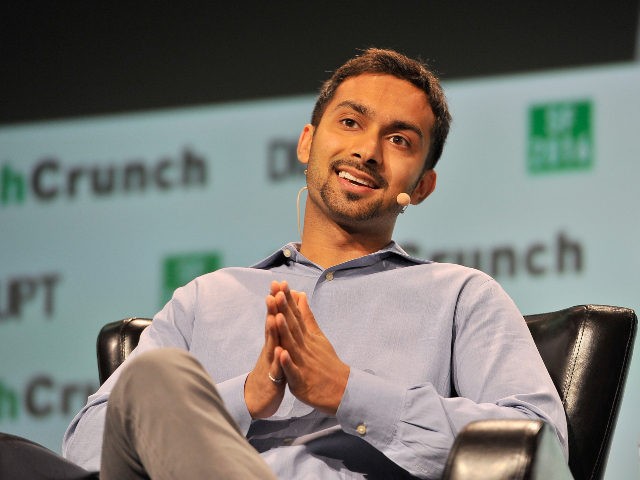In days past, if you were risking your life for low pay, that likely meant you were a soldier. The upside: survival skills, high status, a free college degree, and good benefits. These days, though, you can risk your life for low pay and get none of those benefits, as a member of the pandemic “Gig Economy.”
As you might expect, the Gig Economy is booming at the moment — with workers being laid off from their regular jobs, the modern-day proletariat has few places to turn but companies like Instacart, to meet the rising demand for home grocery deliveries, along with the myriad companies offering restaurant delivery.
Good news though, Instacart is committed to the safety of its employees — oh no, wait, it isn’t. Instacart has failed to provide its rapidly-growing army of shoppers with an adequate supply of hand sanitizer, masks, and other personal protective equipment (PPE). Hazard pay? Don’t be silly — according to the Gig Workers’ Collective, the company hasn’t even increased its default tip amount beyond 10 percent.
The “gig economy” is a new phrase, coined by Silicon Valley to make modern-day tech slavery sound cute. What it really means is that you’ll work harder than your parents did, for less pay, with less stability, with no benefits, and no workers’ rights.
The classic example is ridesharing apps, which displaced the once-stable industry of taxi cabs. There once was a time where taxi cab drivers could earn a decent living, even support a family on their salary. Try doing that with Uber or Lyft! According to a report from several years ago, only four percent of Uber drivers stay with the company for at least a year.
Although if you’re going to earn a living driving, there’s not much of an alternative — taxi drivers in New York City who spent hundreds of thousands of dollars to acquire official taxi medallions are now committing suicide as ridesharing apps displace their once-lucrative industry. Free-market libertarians like to praise the disruption brought about by the “invisible hand of the market,” but they neglect to mention that it sometimes carries a knife. That isn’t purely metaphorical either — the company admitted to 3,000 sexual assaults by its drivers in 2018.
The Gig Economy is, of course, an invention of the modern tech elite, which probably thinks American serfs are living the good life compared to the Chinese sweatshop workers who assemble Android and Apple devices (they’re prone to killing themselves too, by the way).
The tech companies know that depriving their workers of regular employment rights is key to their business model. That’s why Uber and Postmates, two giants of the Gig Economy, are suing the state of California to overturn a law that would classify their gig workers are employees.
Even when tech workers are given regular employee status, they are still treated with contempt. There’s no better example than Amazon. Run by the plutocrat of plutocrats, world’s richest man Jeff Bezos, the company seems to commit a new outrage against its employees every week. Most recently, the tech giant fired an employee at one of its New York distribution centers for daring to tell his coworkers – and the public – that there was a coronavirus outbreak at the facility.
Then again, this is the same company that patented a system to put employees in cages, reportedly pressures employees not to take bathroom breaks, and allegedly fires women for becoming pregnant.
My favorite example of Amazon’s intense hatred of its own employees is the “heat map” it uses on employees of its Whole Foods stores, to discover which ones are most at risk of unionization. On of the reported findings of the “heat map” is that stores with a higher level of racial diversity – and, presumably, less cohesion – are less likely to unionize.
With such Machiavellian warfare on their own employees, is it any wonder that a Gig Economy stalwart like GrubHub saw the coronavirus pandemic as an opportunity to pinch pennies from cash-strapped restaurants? The delivery app is accused of forcing restaurants to offer customers discounts, while still charging commission fees based on the full original price of deliveries. Delivery services are also trying to pull the wool over restaurant owners’ eyes by listing them on their apps without the restaurants’ knowledge, even when the restaurants in question don’t offer delivery or takeout.
Even before the virus, gig workers at Instacart were now so mistrustful of their Silicon Valley masters that they asked the U.S. Department of Labor to investigate allegedly missing tips. Instacart once even tried to make tips count towards workers’ overall wages, before backlash forced it to reverse the policy. And the app has yet to fix a loophole that allows customers to lure Instacart shoppers with the promise of big tips, only to adjust the tips downwards or cancel them altogether after delivery. Other popular delivery apps like DoorDash have also made headlines for adding tips to their bottom line instead of giving them to the gig workers.
Historians have long observed that a grim upside to global pandemics is that a reduction in the supply of labor leads to improved working conditions for survivors. Thanks to technology, it looks like the reverse is true of coronavirus. For America’s proletariat, the only light at the end of the tunnel is the notification on their smartphones, a message from their slavemasters in Silicon Valley, cheerfully reminding them that Pride month is next week and that their default tips have been reduced by 5 percent.
Are you an insider at Google, Reddit, Facebook, Twitter, or any other tech company who wants to confidentially reveal wrongdoing or political bias at your company? Reach out to Allum Bokhari at his secure email address allumbokhari@protonmail.com.
Allum Bokhari is the senior technology correspondent at Breitbart News.

COMMENTS
Please let us know if you're having issues with commenting.